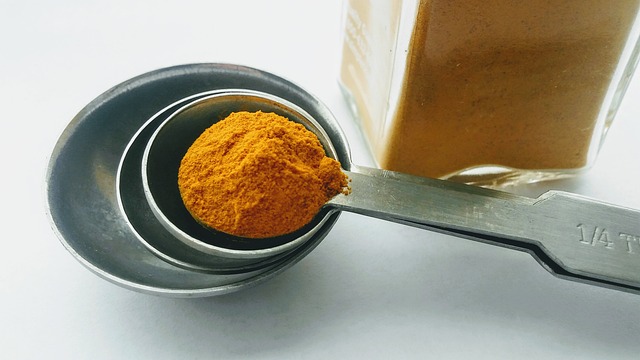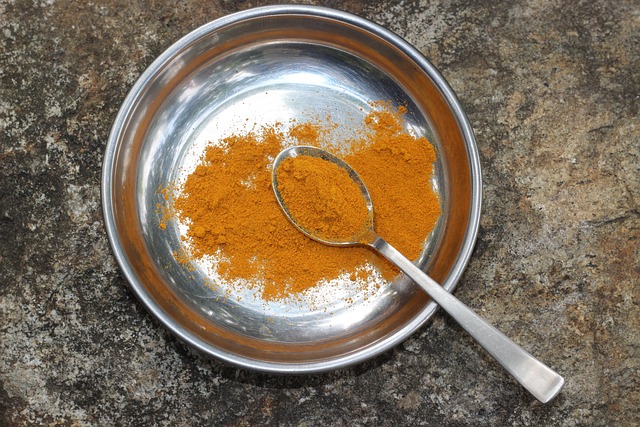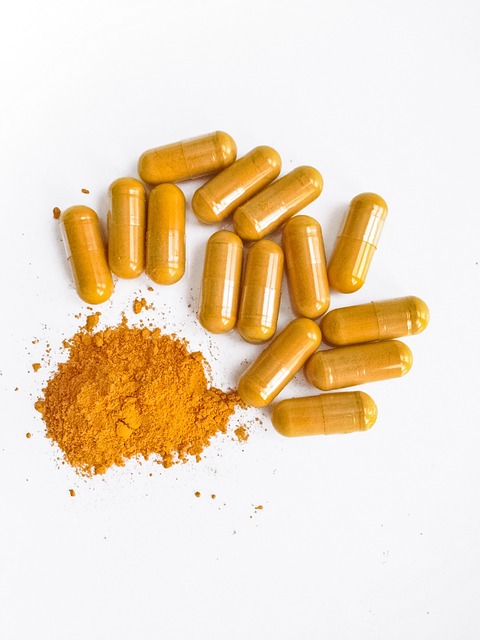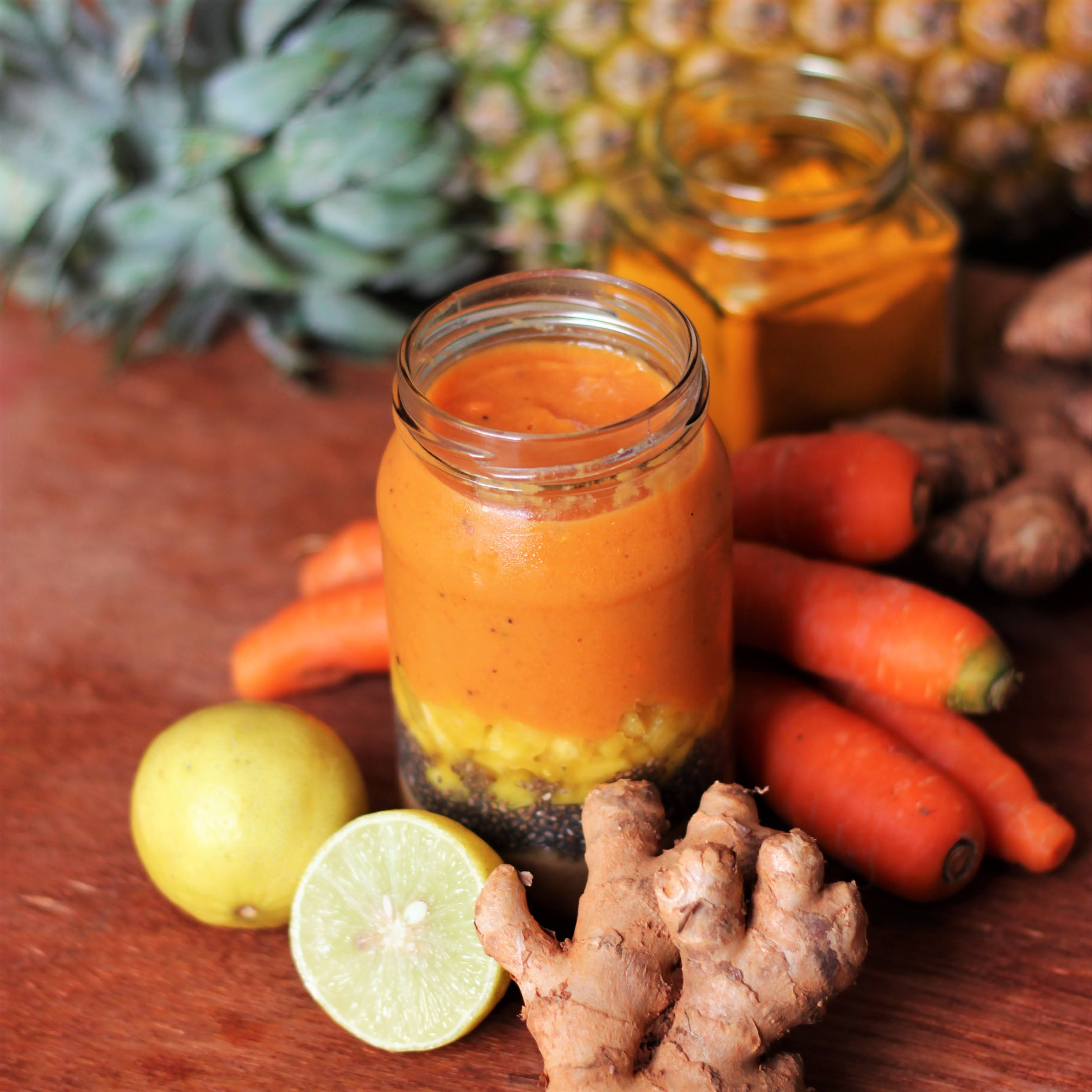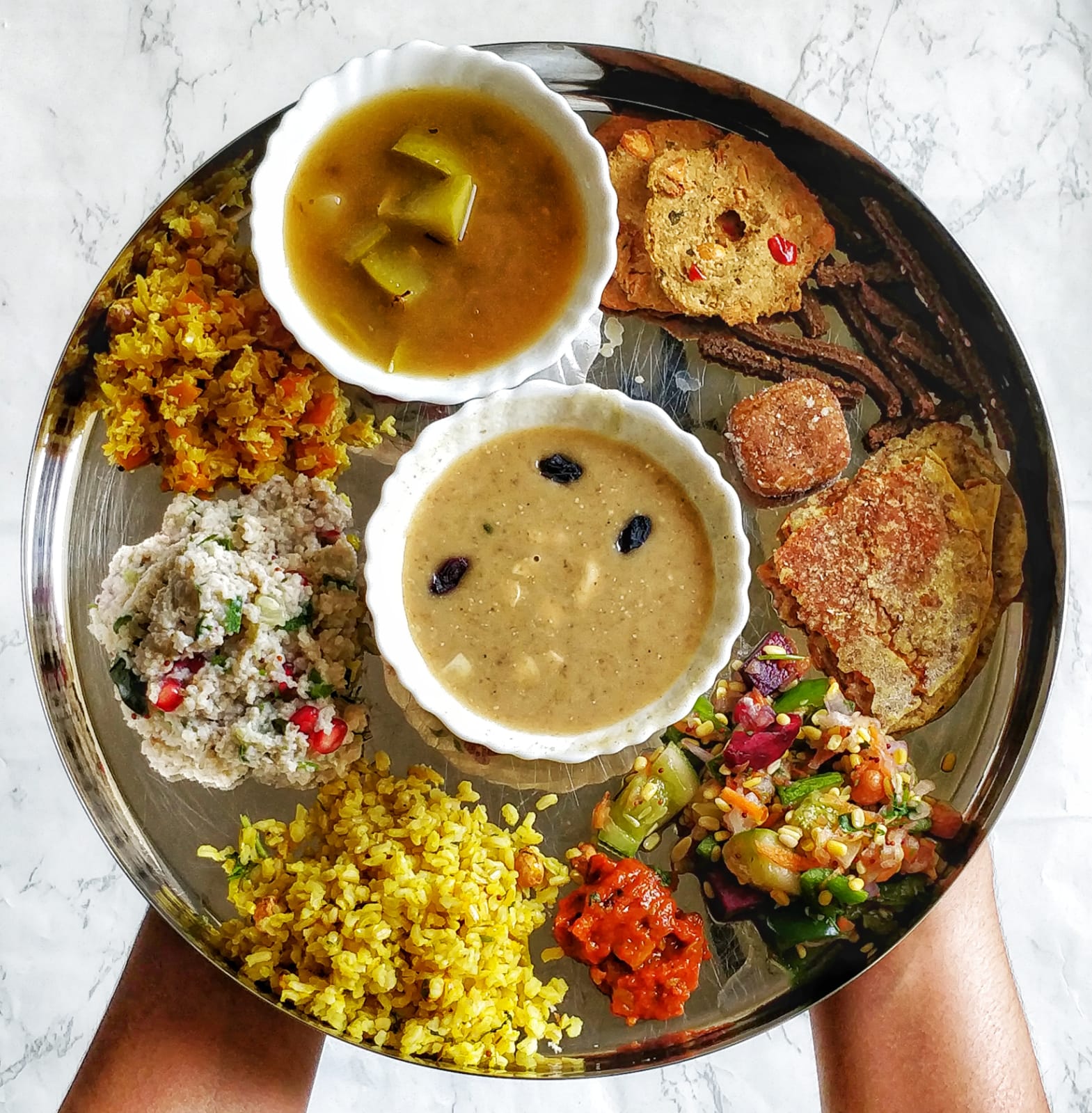How Much Turmeric Is Safe During Pregnancy (Do THIS To Boost Turmeric Benefits)
A pregnant woman’s diet should be carefully monitored to ensure proper nutrition for her and the growing baby.
An essential ingredient that can provide a range of benefits is turmeric, which has long been recognized as having powerful anti-inflammatory, antioxidant, antiseptic, and antibacterial properties.
However, it is important to monitor how much dietary curcumin intake is safe during pregnancy in order to capitalize on its health benefits without causing any harm.
How much turmeric is safe when you’re expecting?
To answer this question requires a closer look at the science surrounding this spice and what measures women can take to boost its potential benefits safely while pregnant.
Turmeric or Curcuma Longa contains curcuminoids as well as volatile oils such as tumerone, atlantone and zingiberone; these compounds are responsible for its distinctive yellow color and pungent taste.
Curcumin – one of the major components found in turmeric – possesses strong biological activities like anti-inflammatory effects that help reduce inflammation associated with certain conditions like arthritis or asthma.
Additionally, research suggests that due to its ability to inhibit oxidative stress and scavenge free radicals, dietary curcumin may also offer neuroprotective effects by reducing neurotoxicity caused by high levels of oxygen reactive species.
As such, consuming turmeric regularly may provide numerous therapeutic benefits both prenatally and postpartum.
In spite of the promising evidence concerning the many potential health benefits of turmeric use in pregnancy, there exists some concern over possible side effects stemming from excessive consumption of this spice during gestation.
The safety of curcumin in patients with various diseases when taken in supplement form needs further research.
Excessive activity of curcumin when taken in supplement form may have supportive or inhibitory effects on various physiological processes, from epithelial cell function to blood clotting to endothelial cells' integrity, which your health provider will be able to guide you on.
In light of this fact, naturopathic doctors must consider various factors related to safety when recommending amounts of dietary curcuma longa for their patients who are expecting.
Moreover, they must explore ways in which individuals can maximize the effectiveness of their curcumin intake through effective combination therapies or other strategies in order to optimize outcomes for mother and child alike.
What Is Turmeric?
Turmeric is like a ray of sunshine for the body, providing numerous health benefits.
Turmeric (Curcuma longa) is an ancient spice often found in traditional Indian and Chinese cuisines.
Curcuma longa extract contains various compounds that have been studied extensively to determine their therapeutic effects on humans.
The main active component of curcuma longa is curcumin, which has powerful anti-inflammatory properties and may be beneficial for treating several conditions.
It has also been used safely as part of traditional diets for centuries.
Recent studies suggest that Curcumin in patients can provide multiple pharmacological activities such as antioxidation, anticancer, and antiviral effects.
In addition, research indicates that it may help reduce inflammation levels both systemically and locally when taken orally in the form of dietary curcumin-containing turmeric.
However, no scientific data exists regarding the safety of taking high amounts of dietary curcumin during pregnancy; therefore, pregnant women should consult with their physician before consuming large doses of this powerful compound to ensure they are not putting themselves at risk.
Benefits Of Turmeric During Pregnancy
Turmeric, also known as Curcuma domestica or Curcuma longa, has been used for generations to improve health and wellbeing.
This ancient spice is now gaining increasing attention due to its beneficial effects during pregnancy.
Studies have shown that curcumin, the active ingredient in curcuma longa, can be highly effective when it comes to supporting a healthy body during pregnancy.
Research on pregnant women has revealed an impressive range of activity of curcumin in various areas such as antioxidant properties and inflammatory response modulation.
These findings suggest that there may be some potential benefits of taking dietary curcumin through turmeric during pregnancy.
However, further research is needed to confirm these results and determine how much curcuma domestica is safe for pregnant women before any recommendations can be made about dosage levels.
Risks Of Taking Turmeric During Pregnancy
Turmeric, or curcuma longa linn, is a staple in many kitchens and an important ingredient in most dishes.
But when it comes to pregnancy, there are risks associated with over-consuming this vibrant yellow spice.
While the potential benefits of taking turmeric during pregnancy can be immense—such as reducing inflammation and regulating blood pressure—it’s essential that pregnant women do not take too much without consulting their healthcare provider first.
When taken in large doses, curcuma longa may cause adverse effects such as increased risk of kidney stones due to its oxalic acid content.
More importantly, consuming curcuma longa turmeric powder or curcumin supplements may lead to liver damage if the dosage is too large.
For this reason, using turmeric as a spice rather than a supplement may be safer during pregnancy.
It’s clear that pregnant women need to exercise caution when considering whether or not to take curcuma longa supplements during their pregnancy journey.
Consultation with a health care provider is necessary before beginning any supplementation regimen while expecting to ensure safety for both baby and mother.
Recommended Daily Intake For Turmeric During Pregnancy
When considering the safety of taking turmeric during pregnancy, it is important to consider the recommended daily intake.
As a natural substance with antioxidant defenses and health benefits, turmeric is generally considered safe for pregnant women in small amounts.
Up to 1/2 tsp of turmeric powder a day has been proven to offer maximum benefits without side effects for most people.
However, further research is needed to confirm the optimal dosage of curcumin supplements for pregnant women as well as any potential side effects from taking too much.
It is also essential to discuss with your healthcare provider before adding new supplements into your diet while pregnant.
With careful consideration and professional medical advice, it may be possible to reap the many potential rewards of incorporating this powerful spice into one’s diet safely during pregnancy.
Potential Side Effects Of Taking Too Much Turmeric During Pregnancy
Have you ever wondered if taking too much turmeric during pregnancy can be harmful?
Turmeric is a commonly used spice that has been associated with numerous health benefits like boosting your antioxidant defenses, but it is important to understand the potential side effects of exceeding the recommended daily intake.
This article will explore the risks associated with consuming too much curcuma longa while pregnant.
Curcuma longa contains curcumin which may interfere with blood clotting and can lead to an increased risk for bleeding in pregnant women who are taking blood thinners for medical conditions.
Curcumin supplements have also been associated with harmful side effects when the activity of curcumin goes beyond physiologically safe levels.
At such high levels, the safety of curcumin gives way and starts causing effects like liver damage.
It is therefore essential to consult your healthcare provider before deciding on how much curcuma longa supplement is safe for consumption during pregnancy.
It should also be noted that individuals who are allergic or sensitive to this herb should avoid taking large quantities even if they are not expecting at the time as reactions such as skin rashes, nausea and vomiting can occur.
We will next discuss ways to check whether or not you have an allergy towards turmeric.
How To Check For An Allergy To Turmeric
It can be likened to a delicate dance, in which the practitioner must carefully balance between taking enough of something beneficial, and avoiding any adverse effects.
Such is the case with turmeric during pregnancy; while it offers numerous potential health benefits through its expression by curcumin — such as reducing colorectal cancer risk, promoting antioxidant status, and exhibiting anti-inflammatory biological activities — there are also risks involved if taken in excess quantities.
Therefore, one should always check for an allergy before supplementing with curcuma longa during this special time.
The naturopathic doctor will typically employ two strategies when checking for allergic reactions:
Firstly, they may request that a skin prick test or patch test be undertaken so as to observe whether an individual develops any redness or itching at the site of contact with the herb.
Secondly, they may suggest keeping a food diary to record details about diet and intake volume alongside any symptoms experienced afterwards.
This is important to ensure safety for both mother and baby throughout the pregnancy period.
Ways To Incorporate Turmeric Into Your Diet During Pregnancy
Incorporating turmeric into the diet during pregnancy is a safe and beneficial way to support overall health.
Naturopathic doctors suggest that pregnant women may supplement their diets with as much as 2-3 grams of curcuma longa per day, depending on specific needs.
However, it is important for expectant mothers to consult with their health provider before adding any herbs or spices, especially in supplement form, to their daily routine.
Turmeric can be added in various ways – from teas and tinctures, to capsules and powders.
It can also be cooked into meals such as sambar, dal, gravies, curries, soups, and stews.
Alternatively, turmeric powder may be mixed into smoothies.
Pregnant women should always aim to purchase organic products whenever possible; this will help ensure they are not consuming synthetic additives such as preservatives or emulsifiers while reaping the benefits of curcuma longa's active compounds.
Taking these steps will help maximize the potential positive effects associated with incorporating turmeric into one's diet during pregnancy.
Tips To Maximize Turmeric's Benefits During Pregnancy
Turmeric is an ancient spice known for its medicinal properties, with many expecting mothers turning to it during pregnancy.
In fact, most pregnant women in India have used turmeric as part of their diet traditionally.
Here are some tips on how to maximize the benefits of turmeric when you're expecting:
Firstly, opt for organic and unprocessed forms of turmeric whenever possible.
Look for high-quality raw materials such as ground powder or fresh rhizomes which can be added directly into meals without any further processing.
Secondly, increase your intake gradually and monitor your body's reaction before taking higher doses; this will also help reduce any potential side effects from consuming too much at once.
Lastly, combine turmeric with other herbs and spices like black pepper and ginger to enhance its bioavailability and absorption by the body.
In order to ensure optimal health outcomes for both mother and baby, choosing high-quality organic turmeric is essential.
It’s important to note that not all products are created equal – we get our turmeric powder from FarmFreshBangalore.com which guarantees products free from chemical additives or contaminants that may pose risks during pregnancy.
Turmeric Spice Versus Supplements
Turmeric is a wonder spice, inspiring reverence and awe for its range of healing properties. Its use has been treasured in many cultures as part of traditional medicine for centuries, and now it is being explored further by researchers for modern application.
This article will explore the differences between turmeric spice and supplements to help determine which form is best suited for individual needs.
When comparing turmeric spice versus supplements, there are key differentiating factors worth considering.
Firstly, when opting for whole food spices such as turmeric powder or root, one can enjoy the benefit of synergistic compounds present within the entire plant material that may be missing from an isolated extract supplement.
For example, curcuminoids found in turmeric provide antioxidant benefits but other constituents like essential oils also contribute to anti-inflammatory effects.
Secondly, whole foods are better absorbed through digestion than concentrated extracts due to a synergistic effect; this means more of the beneficial nutrients pass into circulation leading to greater bioavailability.
Finally, quality should not be overlooked regardless of the delivery format chosen; both forms need to meet safety standards set out by governing bodies since products vary widely in terms of potency and purity levels.
Please keep in mind, turmeric or cucumin supplements in higher dose have been associated with some side effects such as liver damage, but turmeric as a spice has been generally found to be safe.
With sufficient knowledge about each option combined with proper guidance from a naturopathic doctor, individuals can safely choose what works best for them.
As we move forward, let's explore recipes on how to effectively incorporate turmeric into diets...
10 Recipes To Use Turmeric
Turmeric is a powerful spice that has been used for centuries to enhance flavor and treat various ailments.
It can also be turned into dietary supplements, which offer some of the same benefits but with higher concentrations.
As such, many people are looking for ways to increase their intake in safe and creative ways during pregnancy.
One option is to incorporate it into recipes.
Here are 10 unique ways to use turmeric:
- Add it to soup or broth for extra depth of flavor;
- Sprinkle onto vegetables before cooking them;
- Blend into smoothies for a subtle hint of spice;
- Incorporate it into salad dressings;
- Make homemade hummus with tahini and turmeric;
- Add it to dal or sambar for rich, flavourful side dishes;
- Create a marinade with cashew butter and herbs like rosemary and thyme;
- Combine it with pepper and soya milk to make Golden Milk
- Use half a teaspoonful to make golden tea blends;
- Bake it into muffins, breads, scones, pancakes and more.
These recipes allow pregnant women to enjoy all the health benefits of turmeric while keeping within recommended portions during this special time in life.
Additionally, when made from scratch at home these dishes ensure no excess ingredients or preservatives have been added that could cause harm.
Finding fun new ways to include this ancient herb helps maintain its popularity today while promoting optimal wellness during pregnancy.
Possible Interactions Between Turmeric And Medications During Pregnancy
Turmeric has long been recognized as a beneficial herb in traditional medicine, offering many potential health benefits.
During pregnancy, however, it is important to be aware of the possible interactions between turmeric and medications that may arise.
Turmeric has some anticoagulant function, which can increase bleeding risk when taken with blood thinning drugs such as warfarin or aspirin.
Additionally, because curcuma longa stimulates bile production, it could theoretically interact with certain liver-metabolized drugs like statins and birth control pills; this interaction should be discussed with your physician prior to taking any supplements containing curcuma longa extractduring pregnancy.
Furthermore, due to the lack of clinical research on pregnant women consuming large amounts of turmeric, it is difficult to determine exactly how much would pose no safety hazard for expecting mothers.
It is recommended that pregnant women consult their healthcare provider before using turmeric supplementation like curcuma longa extract to ensure its safe use throughout the duration of the pregnancy.
Consumed with food as a spice, it should be safe for most people.
With proper guidance from a qualified medical professional regarding dosage recommendations and potential drug interactions, expectant mothers can reap the benefits of this powerful medicinal herb without compromising their own health or that of their unborn child.
Questions To Ask Your Doctor About Taking Turmeric During Pregnancy
When expecting mothers are considering taking turmeric during pregnancy, it is important to understand the potential risks and benefits of this powerful herb, curcuma longa.
As a naturopathic doctor, I am often asked questions about how much curcuma longa is safe in pregnancy and ways to boost its beneficial effects.
With all things considered, here are some essential questions that should be discussed with your healthcare provider before embarking on any supplement or herbal regimen while pregnant, especially curcuma longa.
As an old adage goes, "an ounce of prevention is worth a pound of cure," so let us begin by exploring possible interactions between turmeric and medications used during pregnancy.
Turmeric has been known to interact with certain drugs, such as blood thinners like warfarin (Coumadin) and antacids containing magnesium hydroxide or aluminum hydroxide which can reduce absorption of curcumin from the gut.
If you're currently taking these medications or other prescriptions for medical conditions related to pregnancy, then you'll want to talk to your doctor about whether adding turmeric into your routine could cause any unwanted side-effects.
The next step would be determining if there are contraindications pertaining specifically to use of curcuma longa in pregnancy due to its effect on hormones.
Certain compounds found in turmeric may affect estrogen levels in men and women; although studies have not yet determined their exact impact in humans nor what amount might pose risk versus benefit ratio when taken during gestation period.
This hormone imbalance may even potentially lead to dangerous side effects like uterine contractions during pregnancy.
It is therefore advisable to check with your health care practitioner before using larger doses of this spice than what is normally consumed through food sources such as dal, sambar, gravy, curry dishes or golden milk lattes etc.
Additionally seeking guidance about forms that may offer additional protection against gastrointestinal irritation associated with higher amounts ingested orally - e.g., enteric coated capsules vs raw powder form - can help make sure you get maximum bioavailability without compromising safety for mother and baby alike.
Frequently Asked Questions
Is It Safe To Take Turmeric In Combination With Other Herbal Supplements During Pregnancy?
When it comes to taking turmeric, or any other herbal supplement for that matter, during pregnancy, it is important to understand the potential risks and benefits.
Taking turmeric in combination with other herbs can provide additional health benefits but should always be done under the guidance of a qualified healthcare provider.
It is essential to ensure that all medications, including herbal supplements like curcuma longa extract, are taken at appropriate doses according to individual needs as determined by their doctor.
Herbal therapies are powerful and have been used safely for centuries; however, they may interact with certain medications, so consulting your naturopathic physician before beginning any new regimen is advised.
Furthermore, pregnant women must take extra care when selecting an herbal product due to possible adverse effects on the developing fetus.
Naturopathic physicians (BNYS Doctors) typically recommend starting slowly when introducing new herbs into a routine and increasing dosage gradually.
Additionally, combining different herbs introduces multiple compounds which could potentially increase efficacy while reducing side-effects since some constituents offset others’ negative qualities.
However, NPs caution against self-prescribing as not all combinations will work effectively together without proper supervision from a medical professional experienced in botanical medicine.
On the other hand, using turmeric as a culinary spice to improve dietary curcumin consumptions may be safe for most people in combination with other culinary herbs and spices like pepper, coriander, and mint.
How Long Does It Take For Turmeric To Start Showing Benefits During Pregnancy?
Turmeric, a golden-yellow spice with a long history of traditional use in Ayurvedic medicine, is gaining increasing attention for its potential to provide benefits during pregnancy.
With careful consideration and monitoring, curcuma longa can be safely used while pregnant to boost the body's own natural healing powers. But how long does it take to start seeing results?
The answer may depend on many factors such as individual metabolism and dosage levels taken.
However, some studies suggest that taking a daily dose of turmeric for at least two weeks could result in beneficial effects.
Curcuma longa contains an active component known as curcumin which has been linked to anti-inflammatory properties; this could help reduce aches and pains associated with pregnancy or other physical ailments.
Additionally, research indicates that regular intake of turmeric could also have positive impacts on overall health by aiding digestion, boosting immunity and helping maintain healthy blood sugar levels over time.
By incorporating small amounts of turmeric into one’s diet whilst pregnant, there are potential rewards awaiting those who choose to do so - provided they understand safe usage guidelines and monitor their dosages accordingly .
The evidence suggests that even moderate doses taken regularly can provide tangible improvements in wellbeing within a relatively short period of time – allowing mothers-to-be to reap the benefits without compromising safety or comfort.
Is It Safe To Take Turmeric If I Have A History Of Gallstones?
Nature has endowed us with a range of natural remedies to help in times of need, and turmeric is one such remedy that can be especially beneficial for pregnant women.
But how safe is it to take if you have a history of gallstones?
To answer this question, let's look at the facts.
First there are the potential benefits:
- Curcuma longa has anti-inflammatory properties which can reduce swelling during pregnancy
- The antispasmodic qualities of curcuma longa linn may provide relief from muscle pain
- Curcuma domestica's antioxidant content can help protect against cell damage.
- A recent trial of curcumin supplementation found that it improves the function of vascular endothelial cells in healthy middle-aged and older adults by increasing nitric oxide bioavailability and reducing oxidative stress
There are also risks associated with taking too much turmeric while pregnant, which have not yet been researched thoroughly.
Here is a five point checklist when considering using curcuma longa during pregnancy:
- Ask your doctor before beginning any supplement regimen
- Start slowly - introduce small amounts over time
- Monitor closely for any changes in health
- Do not exceed the recommended dose
- Ideally, use curcuma longa linn as a culinary spice, which is safer than supplements or curcuma longa extract
As a naturopathic doctor, I must emphasize caution – even though some studies suggest turmeric could offer many benefits, it should still be used judiciously by those with a history of gallstones as too much could cause further contraction of the gall bladder and lead to a painful episode.
It is important to discuss all possible side effects and precautions with your healthcare provider before starting an herbal regimen.
With careful consideration and monitoring, however, adding moderate doses of turmeric into your routine may prove helpful during pregnancy to enjoy its therapeutic benefits without compromising safety.
Are There Any Specific Foods I Should Avoid When Taking Turmeric During Pregnancy?
Research suggests that the use of dietary turmeric during pregnancy is safe, because it keeps the activity of curcumin within physiological levels and improves your antioxidant status.
When taking curcuma longa linn during pregnancy, it is important to ensure that you are consuming only organic and high-quality extracts as some low-grade supplements may contain contaminants which could be harmful to both mother and baby.
Women who are pregnant should consult their healthcare provider before introducing any supplement into their diet.
TIP: To boost the benefits of curcuma longa linn while pregnant, consider adding black pepper as this helps increase absorption of curcumin – an active component found in turmeric - into your bloodstream!
A combination of 1/2 tsp turmeric powder and 1/4 tsp black pepper powder spread over three meals daily has been found to significantly increase bioavailability compared to turmeric alone.
Are There Any Safety Concerns For Taking Turmeric If I Have Gestational Diabetes?
Turmeric is a popular spice for its health benefits and has been used as an herbal remedy in many cultures.
It can be taken safely during pregnancy, especially if you have gestational diabetes because curcuma longa improves your antioxidant status and leads to better blood sugar levels.
However, it is advisable to use caution when considering taking curcumin supplements if one suffers from gestational diabetes.
As naturopathic doctors we must take into account individual patient concerns when prescribing medications or supplements while pregnant.
In general, consuming 1-3 grams daily appears to be safe throughout pregnancy; however, those with pre-existing medical conditions should exercise precaution before embarking on any supplementation regime.
For example, there are reports that curcumin may lead to lower fasting blood sugar.
For those with gestational diabetes—a condition caused by elevated glucose levels during pregnancy - this may be helpful, but you should be careful while taking turmeric in addition to any blood sugar lowering medications.
Additionally, further research needs to be conducted regarding potential interactions between turmeric supplements and other medications typically prescribed for gestational diabetes such as insulin injections.
Therefore, it could be beneficial to consult a qualified healthcare provider prior to beginning any type of supplementation program involving turmeric during gestation to ensure optimal safety and efficacy outcomes for both mother and baby.
With evidence based approaches tailored specifically towards individual cases at hand, together we can equip our patients with the tools needed for healthy decision making during their pregnancies and beyond.
Conclusion
Turmeric is a popular herbal supplement amongst pregnant women, as its antioxidant properties can help support the mother and fetus.
However, it is important to understand how much turmeric is safe to take during pregnancy and what precautions must be taken when consuming this powerful herb.
While there are no known adverse effects associated with taking moderate amounts of turmeric while pregnant, caution should be exercised if one has any underlying health conditions such as gallstones or gestational diabetes.
Additionally, certain medications may interact negatively with turmeric - these should be monitored for optimal safety.
Overall, incorporating small doses of turmeric into your diet throughout pregnancy offers numerous potential benefits that could benefit both you and your baby.
As long as care is taken to ensure appropriate levels of consumption and other dietary considerations are addressed, adding a dash of this potent spice into your daily routine will likely boost the overall wellness of both mother and child.
Ultimately, consulting a qualified naturopathic doctor prior to adding herbs like turmeric into your regimen would provide invaluable guidance in achieving an optimum balance between the potentially beneficial effects of the herb and avoiding unwanted side-effects.
Next Steps - Get Started Today
Are you looking to eat healthy? We may be able to help you
- Book an online consultation with Dr. Achyuthan Eswar to learn how best to deal with it.
- Sign up for our Plant Based Diet Masterclass on NutritionScience.in to better understand the numerous benefits of adopting a whole food plant based diet.
- Access our free course to help kickstart your plant based food journey.
- Subscribe to our 100% whole food plant based balanced meal plan, delicious & doctor designed to help you get all your macro and micro nutrients, from the comfort of your home - Bengaluru only
- Our Healthy Executive Thali Subscription is packed with variety and affordable too - Bengaluru only
- Stock up on delicious sweets and snacks that are sugar/jaggery-free, oil-free, maida-free and plant-based - Available Pan-India
- Pizzas, Biryani, Parathas, Burgers and more! Check out our instant meals and special meals here






